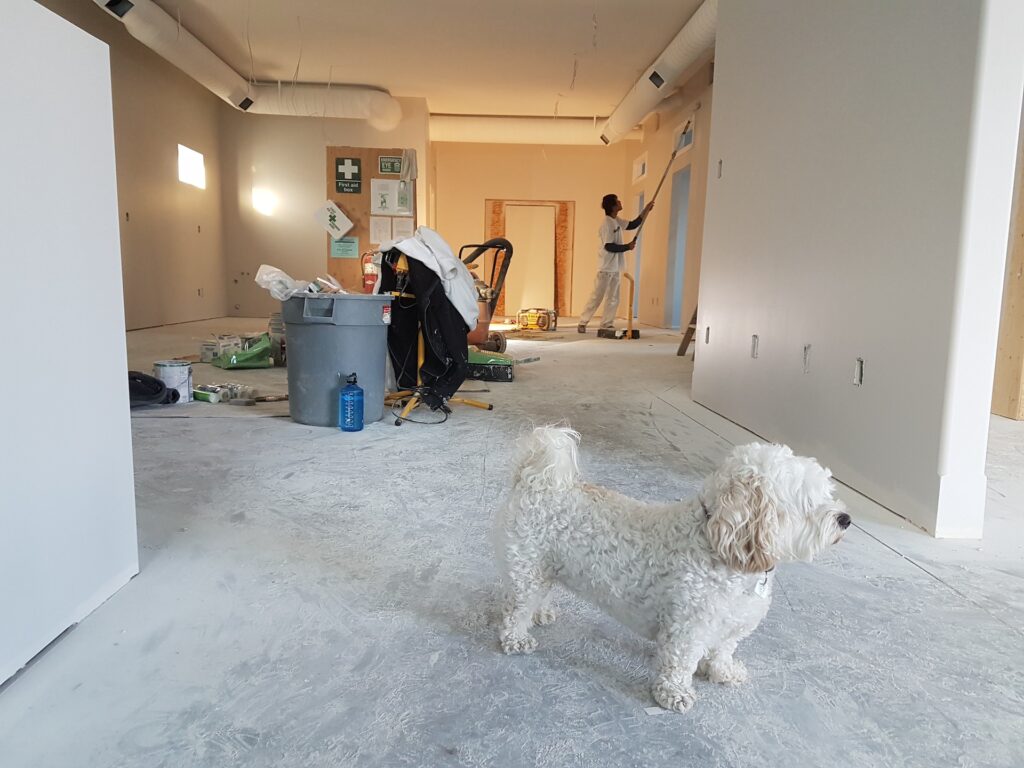
Property management is a multifaceted profession that involves overseeing and maintaining real estate properties on behalf of owners. It encompasses many responsibilities, from tenant acquisition and lease management to property maintenance and financial management. To truly understand the difficulty of property management, it is essential to delve into the various daily roles and responsibilities that property managers undertake.

Defining property management: At its core, property management involves the management and administration of residential, commercial, or industrial properties. Property managers act as intermediaries between property owners and tenants, ensuring that both parties needs are met and that the properties are well-maintained.
Roles and responsibilities of property managers: Property managers wear multiple hats and have diverse responsibilities. They are responsible for marketing rental properties, screening and selecting tenants, handling lease agreements, collecting rent payments, responding to tenant inquiries and concerns, overseeing property maintenance and repairs, managing budgets and finances, and ensuring compliance with legal and regulatory requirements.
Importance of communication and interpersonal skills: Property managers must possess strong communication and interpersonal skills to effectively interact with tenants, property owners, contractors, and other stakeholders. Clear and timely communication is vital for addressing tenant issues, negotiating lease terms, coordinating maintenance requests, and resolving conflicts. Property managers must also be skilled at building and maintaining tenant relationships to ensure tenant satisfaction and retention.
Dealing with Tenant Issues and Complaints
One of the significant challenges in property management involves dealing with tenant issues and complaints. Property managers must be equipped to handle a wide range of tenant inquiries, concerns, and disputes effectively.

Handling tenant inquiries and concerns: Property managers are tenants’ first point of contact. They must promptly respond to inquiries, address concerns, and provide necessary information. This could range from explaining lease terms to handling maintenance requests or addressing complaints about neighbors or property-related issues.
Resolving disputes and conflicts: Conflicts between tenants or tenants and property owners can arise anytime. Property managers are crucial in mediating and finding resolutions to these disputes. This may involve facilitating conversations, negotiating compromises, or involving legal counsel if necessary.
Enforcing lease agreements and policies: Property managers are responsible for ensuring tenants comply with lease agreements and property policies. This includes implementing rent payment schedules, addressing lease violations, and taking appropriate actions, such as issuing warnings or initiating eviction proceedings when necessary.
Maintaining and Managing Property Operations
Another aspect that adds to the complexity of property management is the maintenance and management of property operations. Property managers must ensure that properties are well-maintained, adhere to safety standards, and operate efficiently.
Conducting regular property inspections: Regular inspections allow property managers to identify maintenance issues, assess property conditions, and ensure compliance with safety regulations. Property managers can proactively identify and address potential problems to prevent costly repairs and maintain tenant satisfaction.
Overseeing repairs and maintenance tasks: Property managers are responsible for coordinating repairs and maintenance tasks, whether routine maintenance, emergency repairs, or larger-scale renovations. They must have a network of reliable contractors and vendors to ensure that repairs are completed promptly and cost-effectively.
Managing budgets and financial aspects: Property managers handle financial aspects of property management, such as setting rental rates, collecting rent payments, and managing property budgets. They must ensure that income and expenses are accurately tracked, financial statements are prepared, and property owners receive regular reports on the financial performance of their investments.
Complying with legal and regulatory requirements is crucial for property managers to operate within the bounds of the law and maintain ethical practices.

Complying with local, state, and federal laws: Property managers must stay updated with the ever-changing rules and regulations that govern property management. This includes understanding landlord-tenant laws, fair housing regulations, building codes, zoning laws, and safety standards. Failure to comply with these laws can lead to legal consequences and jeopardize the property manager’s reputation.
Understanding fair housing regulations: Property managers must be well-versed in fair housing laws, which prohibit discrimination based on protected characteristics such as race, religion, gender, disability, or familial status. They must ensure that tenant screening processes, lease agreements, and property management practices fully comply with these regulations.
Handling evictions and tenant screenings: Property managers may need to initiate eviction proceedings when tenants violate lease agreements or fail to meet their financial obligations. This involves following specific legal procedures, adhering to timelines, and documenting the process meticulously. Additionally, conducting thorough tenant screenings to assess applicants’ suitability and financial stability is essential to mitigate potential risks.
Balancing Financial Considerations
Managing the financial aspects of property management can be challenging, as property managers must strike a delicate balance between maximizing profitability and ensuring fair and competitive rental rates.

Setting rental rates and collecting payments: Property managers must conduct market research and analyze factors such as property location, amenities, and current market conditions to set appropriate rental rates. They must also establish efficient systems for collecting rent payments, tracking delinquencies, and implementing strategies to minimize rent arrears.
Budgeting for property expenses: Property managers are responsible for creating and managing property budgets. They must allocate funds for routine maintenance, repairs, property improvements, and other costs. Effective budgeting helps property managers maintain financial stability and ensure that properties remain profitable investments for owners.
Maximizing profitability and return on investment: Property managers are tasked with maximizing the profitability and return on investment for property owners. This may involve identifying opportunities for rental increases, implementing cost-saving measures, negotiating favorable contracts with vendors, and exploring ways to increase property value through renovations or improvements.
Handling Property Marketing and Tenant Acquisition
Effective property marketing and tenant acquisition strategies are essential for property managers to attract qualified tenants and maintain high occupancy rates.
Advertising and promoting rental properties: Property managers employ various marketing channels to advertise and promote vacant properties. This includes online listings, social media platforms, signage, and collaborations with real estate agents. Effective marketing strategies help property managers reach a vast pool of potential tenants and minimize vacancies.

Screening and selecting prospective tenants: Property managers must conduct thorough tenant screenings to assess applicants’ suitability and ensure they meet the property’s criteria. This typically involves verifying employment, conducting background and credit checks, contacting references, and evaluating previous rental histories. Selecting reliable and responsible tenants minimizes risks and maintains a harmonious tenant community.
Managing lease agreements and renewals: Property managers handle lease agreements and lease renewals. They are responsible for ensuring that lease terms are transparent and legally compliant and protect the interests of both the property owner and the tenant. Property managers also facilitate lease renewals, negotiate terms, and implement rent increases when appropriate.
Dealing with Emergency Situations and Property Security
Property managers must be prepared to handle emergencies and prioritize the properties and their tenants’ safety and security.
Developing emergency preparedness plans: Property managers must develop comprehensive strategies to address potential risks and hazards. This includes outlining procedures for emergencies such as fires, floods, earthquakes, or severe weather events. Regular training, communication, and coordination with tenants, staff, and emergency services are crucial for effective emergency management.
Addressing safety concerns and hazards: Property managers must ensure that properties meet safety standards and comply with regulations. This includes maintaining fire safety systems, conducting routine inspections, addressing potential risks, and implementing security measures. Proactive measures help prevent accidents, minimize liabilities, and provide tenants with a secure living or working environment.
Handling emergencies such as floods, fires, or break-ins: In the event of emergencies, property managers are responsible for coordinating timely responses and ensuring the safety of tenants. This includes communicating with emergency services, coordinating repairs and cleanup efforts, and supporting and assisting affected tenants.
Adopting Technology and Property Management Tools
Integrating technology and property management tools has transformed the industry, offering increased efficiency, organization, and streamlined processes for property managers.

Utilizing property management software: Property managers can leverage property management software to streamline administrative tasks, automate rent collection, track maintenance requests, and generate financial reports. Such software centralizes property-related information, facilitates communication, and improves operational efficiency.
Automating tasks and processes: Automation tools can help property managers automate repetitive tasks, such as rent reminders, lease renewals, and maintenance requests. Property managers can focus on more strategic and value-added activities while minimizing manual work and potential errors.
Enhancing efficiency and organization: Technology solutions enable property managers to stay organized, maintain comprehensive records, and access information from anywhere. Digital platforms for document management, accounting systems, and online communication tools contribute to improved efficiency and productivity in property management operations.
Coping with Stress and Challenges in Property Management
Property management can be demanding and requires effective stress management strategies and a proactive approach to overcoming challenges.
Handling demanding tenants and difficult situations: Property managers often encounter challenging problems and problematic tenants. They must possess strong problem-solving and resolution skills to manage conflicts, negotiate resolutions, and maintain professionalism and composure in stressful situations.
Balancing multiple responsibilities and deadlines: Property managers juggle multiple responsibilities simultaneously, from managing tenant issues to overseeing property operations and financial management. They must prioritize tasks, manage time effectively, and maintain attention to detail to meet deadlines and fulfill obligations.
Developing self-care strategies and seeking support: Property management can be emotionally and physically demanding. Property managers should prioritize self-care and develop strategies to manage stress effectively. This may involve setting boundaries, practicing mindfulness, seeking support from colleagues or professional networks, and engaging in activities that promote work-life balance.
The Rewards and Advantages of Property Management
Despite the challenges, property management offers several rewards and advantages for interested individuals.

Generating passive income and building wealth: Property management provides opportunities for generating passive income through rental properties. Property managers can help owners maximize their investment returns and build long-term wealth through strategic property management practices.
Developing valuable skills and experience: Property management equips individuals with a diverse set of skills, including communication, negotiation, problem-solving, financial management, and customer service. These skills are transferable and valuable in various industries, making property management a rewarding career.
Contributing to communities and providing quality housing: Property managers are crucial in providing safe and comfortable housing options for individuals and families. By maintaining well-managed properties and fostering positive tenant experiences, property managers contribute to the overall quality of communities.
Conclusion
Property management is undoubtedly a challenging profession that requires a diverse skill set, in-depth knowledge of legal and regulatory requirements, and the ability to handle various responsibilities simultaneously. However, with its challenges come rewarding opportunities, including generating passive income, developing valuable skills, and contributing to communities. Aspiring property managers should weigh the pros and cons, considering their aptitude, interests, and commitment to continuous learning and professional development. By doing so, they can make an informed decision about pursuing a career in property management and navigating the complexities that come with it.